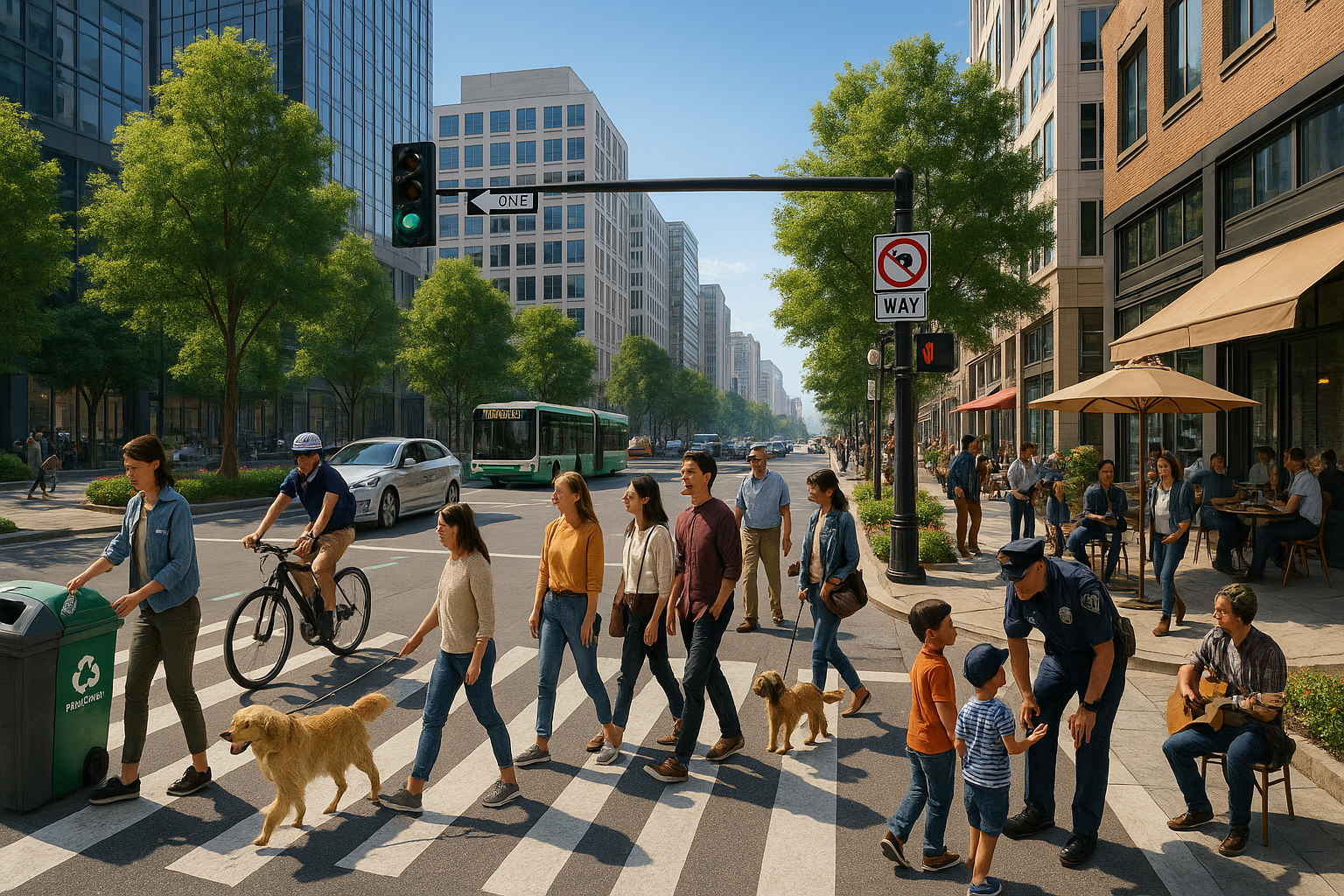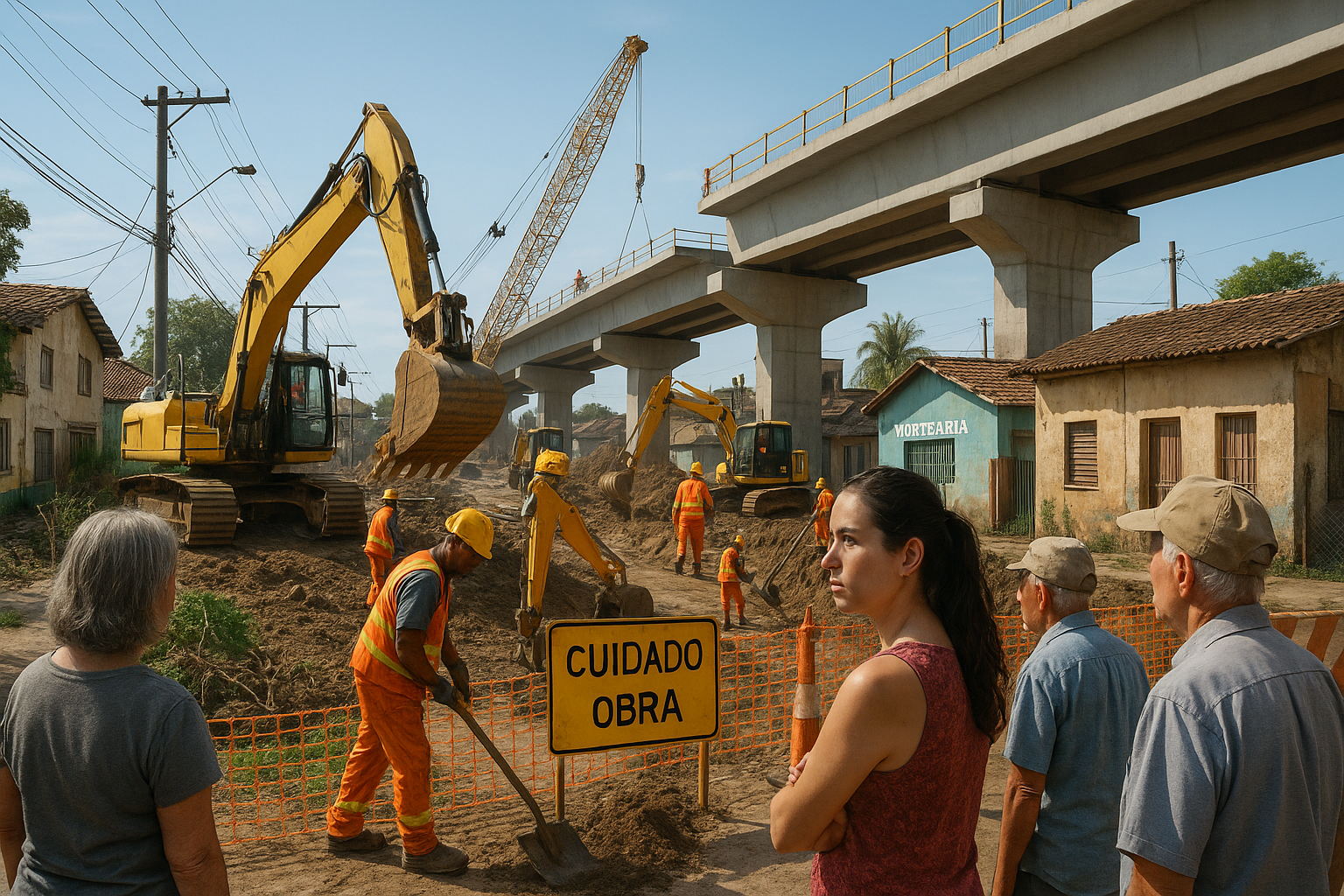In the heart of every bustling city, a complex tapestry of life unfolds, weaving together diverse cultures, economic pursuits, and vibrant communities. Yet, beneath the surface of this urban jungle lies a delicate balance, where ethics and responsibility play crucial roles in shaping the interactions between its inhabitants. As urban areas continue to grow at an unprecedented rate, the importance of navigating these spaces with respect and responsibility becomes ever more critical. 🌆
Urbanization has brought about significant advancements, offering countless opportunities for growth and innovation. However, it has also introduced a myriad of ethical challenges that demand our attention. From environmental sustainability to social justice, the modern cityscape presents a unique set of dilemmas that require thoughtful consideration and deliberate action.
One of the most pressing issues is the environmental impact of urban development. As skyscrapers reach for the sky and concrete replaces greenery, the need for sustainable practices has never been more urgent. In this article, we will delve into the ethical implications of urban planning, examining how cities can be designed to minimize their carbon footprint while enhancing the quality of life for all residents. 🌿
Beyond environmental concerns, urban areas are also arenas of social complexity. The convergence of diverse cultures and backgrounds creates vibrant communities but can also lead to tension and inequality. Issues such as affordable housing, access to public services, and social inclusion are central to the ethical discourse surrounding urban living. We will explore how policies and initiatives can foster inclusivity and equity, ensuring that cities are places where everyone can thrive, regardless of their socioeconomic status.
Moreover, the digital age has transformed the way we interact within urban environments. The proliferation of technology has introduced new ethical considerations, particularly concerning privacy and data security. As cities become smarter and more connected, the need to protect individual rights while harnessing technological advancements becomes paramount. We will discuss the ethical responsibilities of both governments and corporations in safeguarding personal information and maintaining public trust in an increasingly digital world. 📱
The economic dynamics of cities also present ethical challenges, especially in terms of labor rights and economic disparity. The gig economy, for example, has reshaped traditional employment models, offering flexibility but often at the cost of job security and fair wages. Our exploration will cover how ethical business practices and regulatory frameworks can support sustainable economic growth while protecting the rights and dignity of workers.
Finally, public spaces in urban areas are vital to fostering community engagement and well-being. However, the privatization and commercialization of these spaces can undermine their accessibility and purpose. We will examine the role of public spaces in promoting social interaction and civic participation, and how ethical stewardship can preserve their value for future generations.
As we navigate these ethical depths, it is crucial to recognize the interconnectedness of these issues. The decisions we make today will shape the urban landscapes of tomorrow. By fostering a culture of respect and responsibility, we can create cities that are not only thriving centers of human activity but also bastions of ethical progress. 🌍
In the following sections, we will explore each of these topics in depth, providing insights, case studies, and practical solutions for navigating the urban jungle with integrity. Join us on this journey to uncover how we can collectively contribute to building more ethical and responsible urban environments.

Conclusion: Embarking on an Ethical Urban Odyssey 🌍
As we conclude our exploration of the ethical dimensions involved in navigating the urban jungle, it becomes evident that cities are not just physical spaces but dynamic ecosystems teeming with life, challenges, and opportunities. Throughout this article, we’ve delved into the intricacies of urban ethics, emphasizing the importance of respect and responsibility in our daily interactions.
We began by discussing the diverse cultural, social, and economic tapestry that cities represent. This diversity, while a source of enrichment, also poses unique ethical dilemmas. It requires us to foster inclusivity and equity in our urban policies and personal actions. Our discussion highlighted the need for empathy and understanding in our increasingly interconnected urban environments.
Moving forward, we examined the environmental impact of urban living. Cities, as hubs of human activity, significantly influence our planet’s ecological health. From pollution to resource depletion, the challenges are manifold. However, with conscious efforts, such as adopting sustainable practices and supporting green initiatives, we can mitigate these impacts. It’s a call to action for every urban dweller to contribute to a healthier planet.
We also tackled the ethical considerations in urban planning and development. The design and growth of our cities should not only cater to economic aspirations but also to the well-being of their inhabitants. This involves a delicate balance between innovation and tradition, progress and preservation. Thoughtful urban planning can enhance quality of life while respecting the historical and cultural ethos of our communities.
In our digital age, technology plays a pivotal role in shaping urban experiences. While technology offers incredible potential to improve urban living, it also raises questions about privacy, data security, and ethical use. We emphasized the importance of safeguarding personal information and using technology as a tool for empowerment, not exploitation.
Finally, we addressed the importance of civic engagement and the power of community action. Ethical urban living thrives on active participation from its citizens. Whether through community service, local governance, or grassroots movements, each individual’s contribution is vital. Engaging in dialogue and collaboration can drive meaningful change in our urban landscapes.
The journey through the ethical depths of urban living underscores a universal truth: our cities reflect who we are and who we aspire to be. By embracing respect and responsibility, we can transform urban spaces into havens of harmony and progress. 🌱
We invite you to take these insights into your own urban experience. Share your thoughts, experiences, or questions in the comments below. Your voice is crucial in this ongoing conversation. Moreover, if this article resonated with you, consider sharing it with your network. Together, we can inspire collective action towards more ethical urban living.
For those interested in further exploration, here are some valuable resources:
Let us continue this journey of ethical exploration, one step at a time, towards a future where our cities are not only engines of growth but also bastions of ethical living. 🌟
This conclusion provides a concise summary while reinforcing the importance of ethical urban living. It encourages engagement and provides resources for further learning, maintaining a humanized and professional tone throughout.




